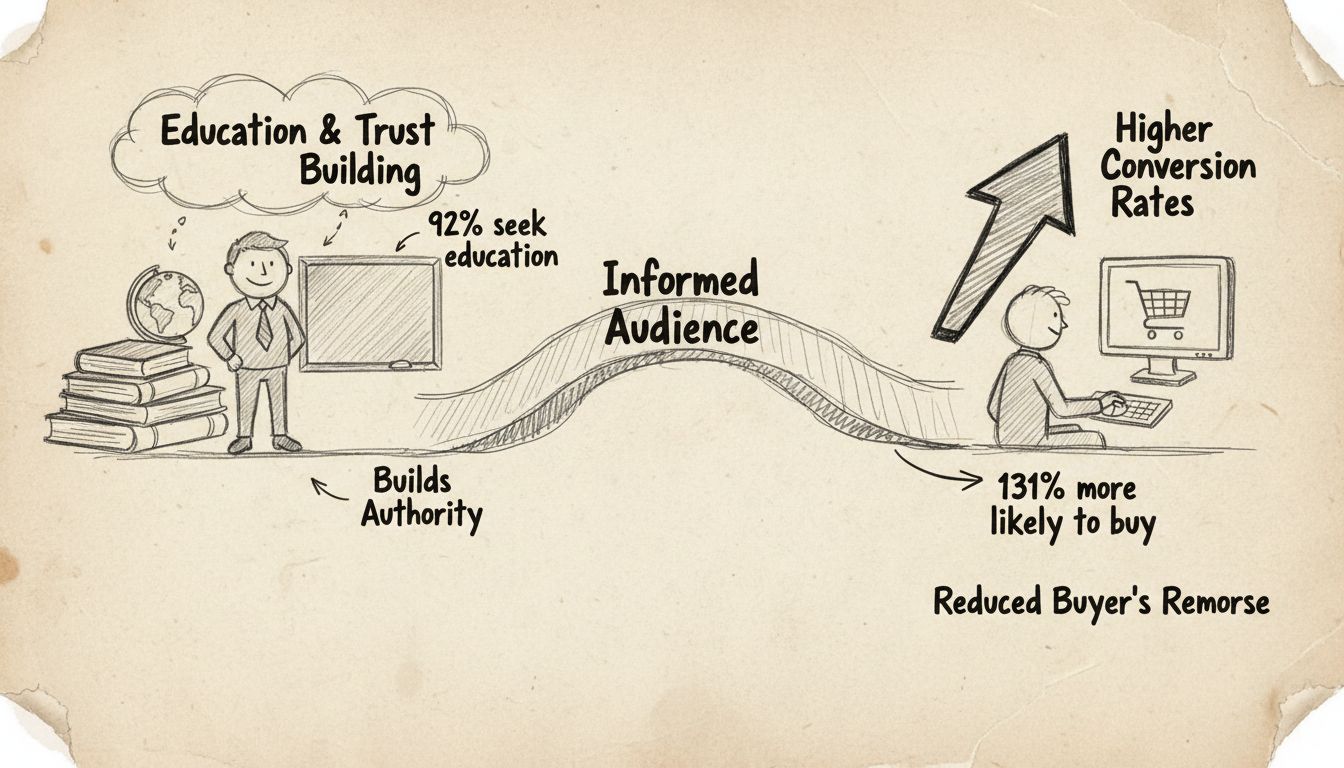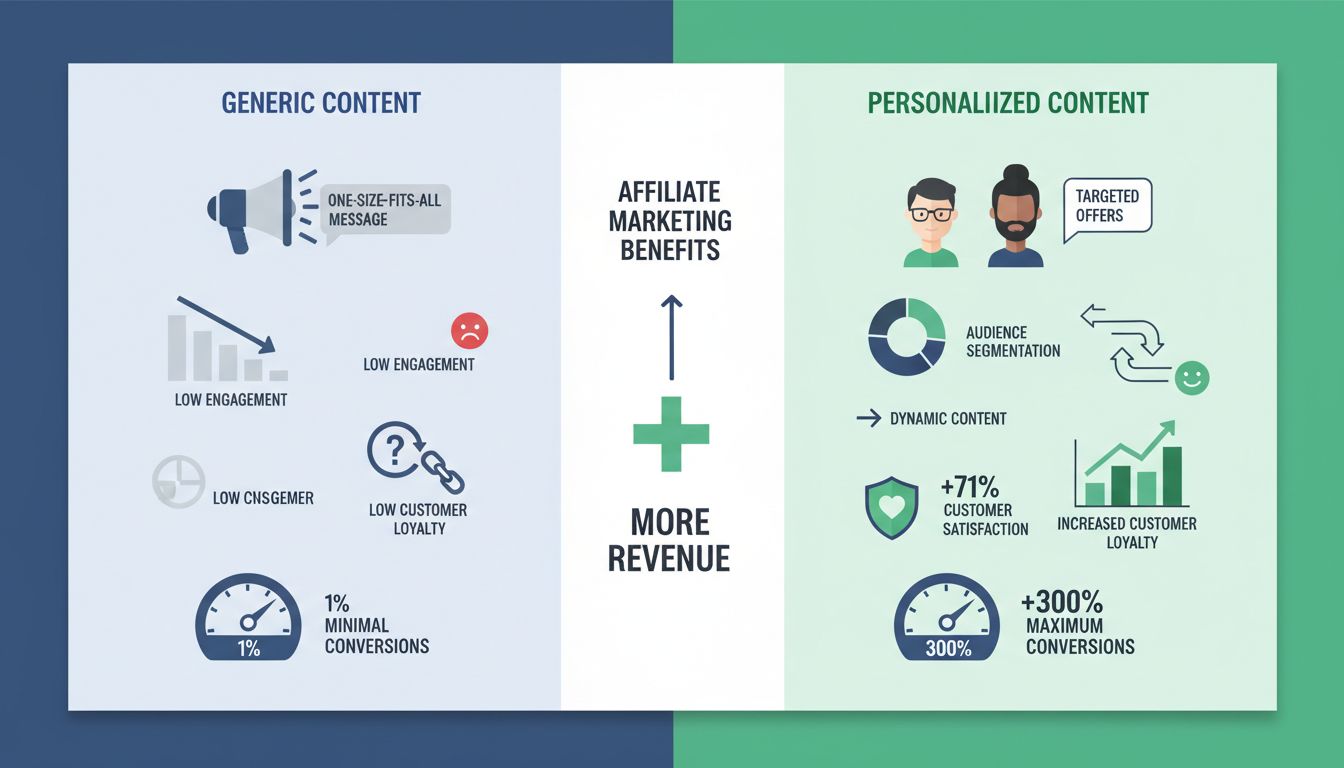
Why Education Matters More Than Selling in Affiliate Marketing Videos
Learn why educational content drives higher affiliate conversions. Discover how building trust and authority with your audience leads to 131% more purchases and...

Learn how to turn strangers into repeat customers by leveraging content marketing psychology—build trust, influence buying decisions, and boost brand loyalty in affiliate marketing.
In the competitive realm of affiliate marketing , turning first-time visitors into loyal, repeat customers is a nuanced art. Leveraging content marketing psychology can play a pivotal role in achieving this transformation. By understanding how to influence buying decisions and perceptions through strategic content, marketers can cultivate a strong, trusting relationship with their audience without overtly focusing on deals or pricing.
Content serves as a silent ambassador, forming the first impression and guiding potential customers through their decision-making journey. Unlike direct sales pitches, content allows brands to subtly influence opinions by providing value and information that align with the audience’s needs. This approach not only draws people to your offerings but does so in a manner that feels organic and unforced.
A key psychological principle at play is the familiarity heuristic, where repeated exposure to content increases the likelihood of being perceived as trustworthy. Consistent engagement through content builds a sense of familiarity, which customers often mistake for truth. As potential buyers become accustomed to your narrative, they are more inclined to trust and choose your brand when a purchasing decision arises.
Traditional sales tactics often create resistance; however, content marketing circumvents this by making offers feel like a natural progression of the consumer’s journey. By embedding offers within valuable content, customers are less likely to resist, as they are not directly aware of being sold to. This subtlety ensures that when an offer is eventually presented, it aligns seamlessly with their perceived needs and desires.
Understanding the cognitive biases that influence consumer behavior is crucial. People are more likely to believe conclusions they arrive at independently. By providing content that guides them subtly to these conclusions, marketers can ensure that potential customers feel their decision to choose a specific product or service is entirely their own. This perceived autonomy strengthens their commitment to the purchase.
For affiliate marketers , the implications of content marketing psychology are profound. By crafting content that resonates with the target audience, affiliates can effectively drive conversions and foster long-term customer relationships. This approach not only enhances brand loyalty but also boosts the overall effectiveness of affiliate campaigns.
Content marketing focuses on providing valuable information and building relationships rather than direct selling. It aims to engage the audience through relevant content, gradually guiding them toward a purchase decision.
Familiarity increases trust. Repeated exposure to consistent messaging makes a brand more recognizable and trustworthy in the eyes of potential customers.
Yes, by aligning content with the audience's needs and preferences, marketers can subtly influence perceptions and guide customers toward making a purchase decision that feels natural and self-initiated.
Cognitive biases shape how consumers interpret information and make decisions. By understanding these biases, marketers can tailor content to align with the audience's thought processes, making it easier to influence their buying behavior.
Experience the power of Post Affiliate Pro with a 30-day free trial. Discover all the features you need for successful affiliate management.

Learn why educational content drives higher affiliate conversions. Discover how building trust and authority with your audience leads to 131% more purchases and...

Discover how to generate $50,000 in just 4 hours with the ultimate content marketing strategy! Learn to build relationships, trust, and passionate audiences tha...

Discover how content personalization increases affiliate marketing conversions by up to 300%. Learn segmentation strategies, dynamic content, and best practices...
Cookie Consent
We use cookies to enhance your browsing experience and analyze our traffic. See our privacy policy.